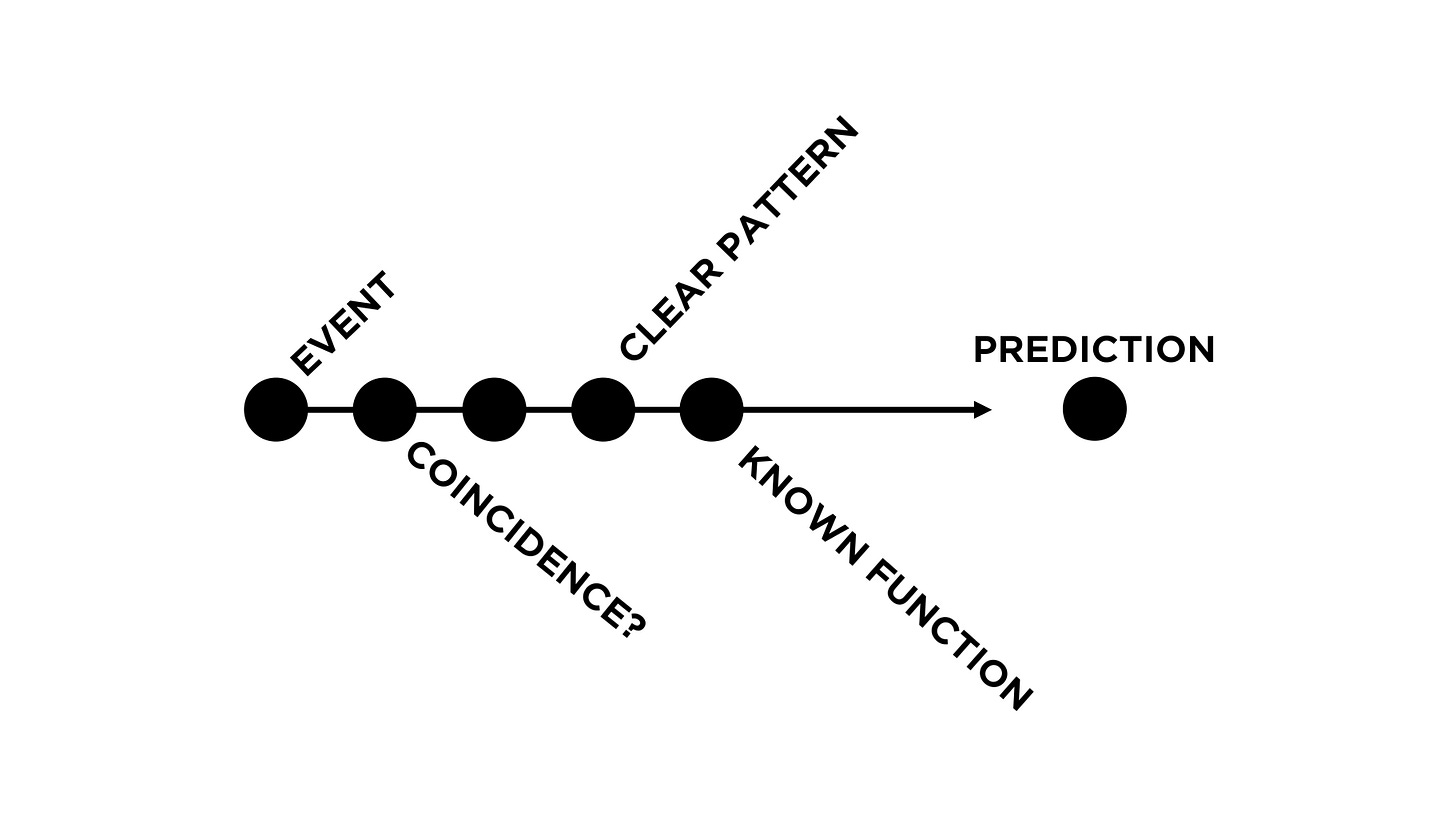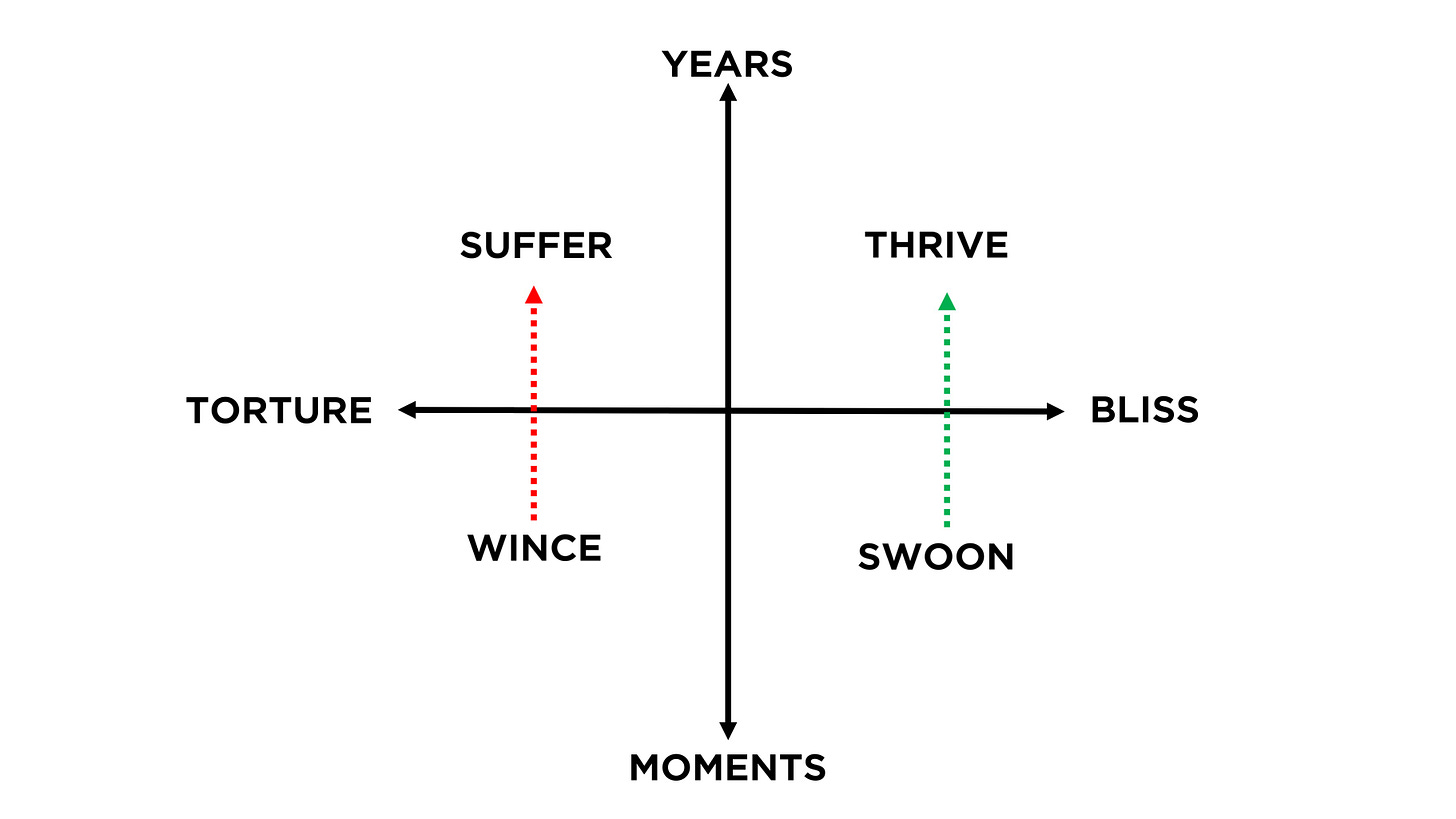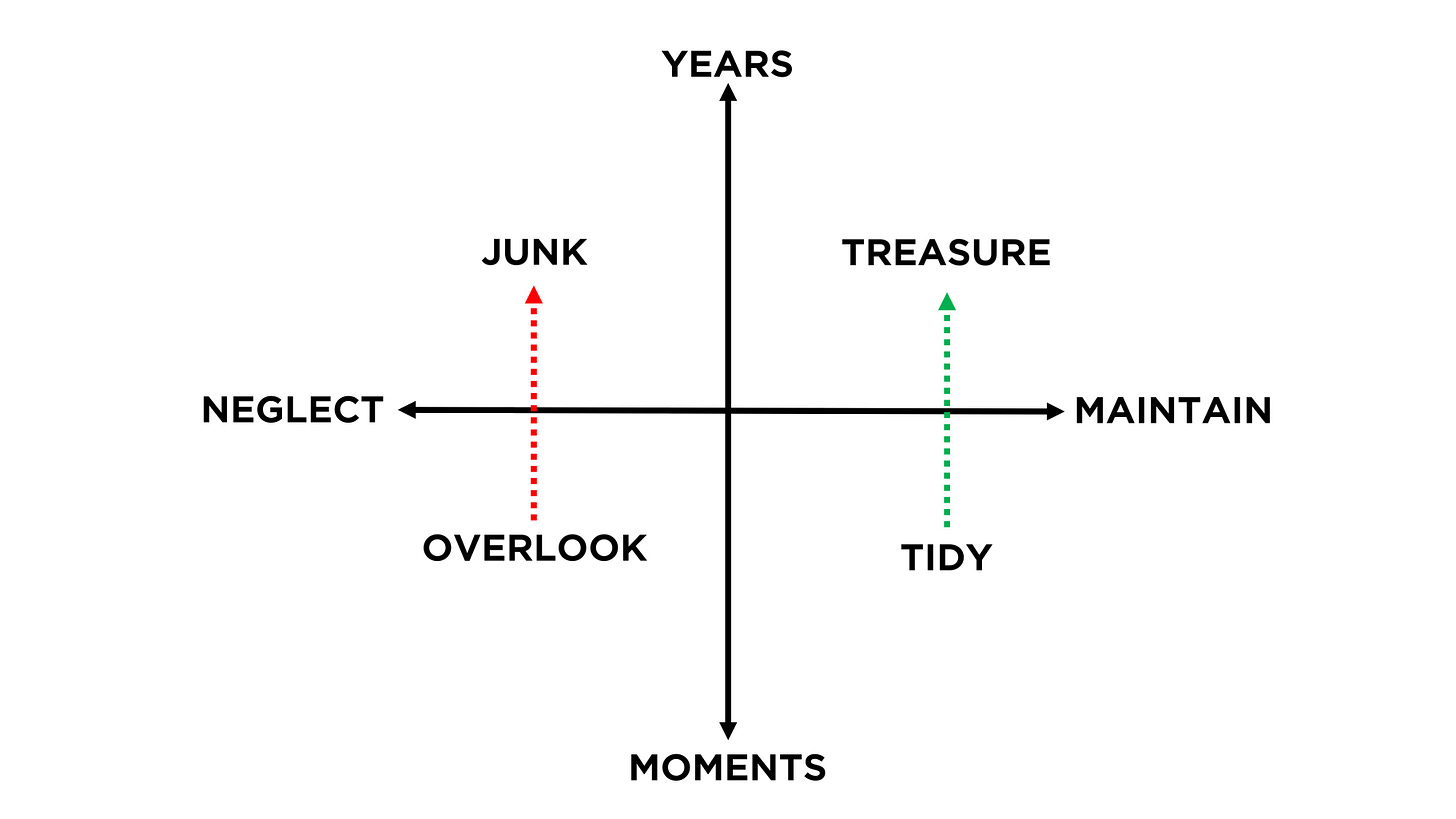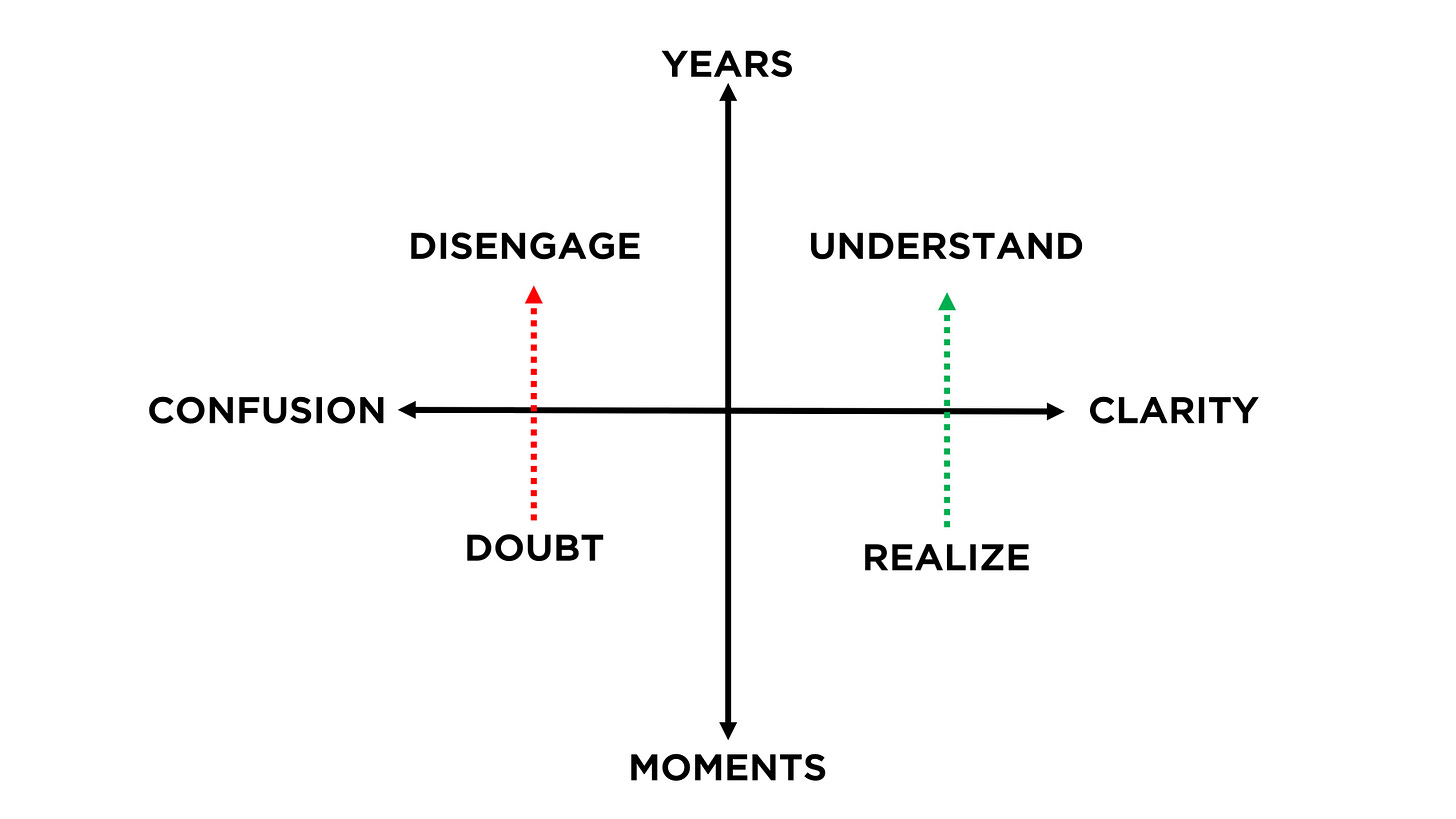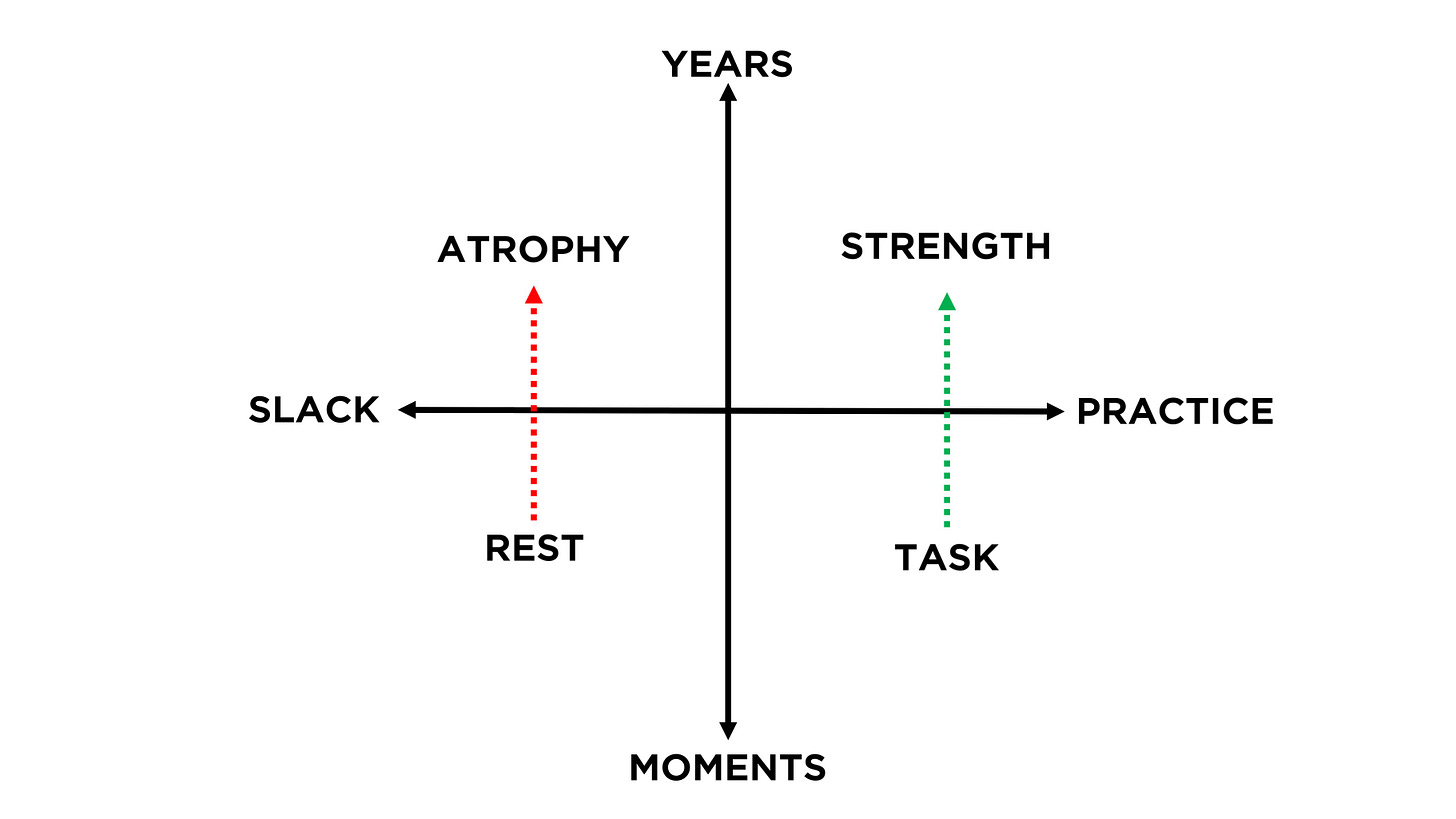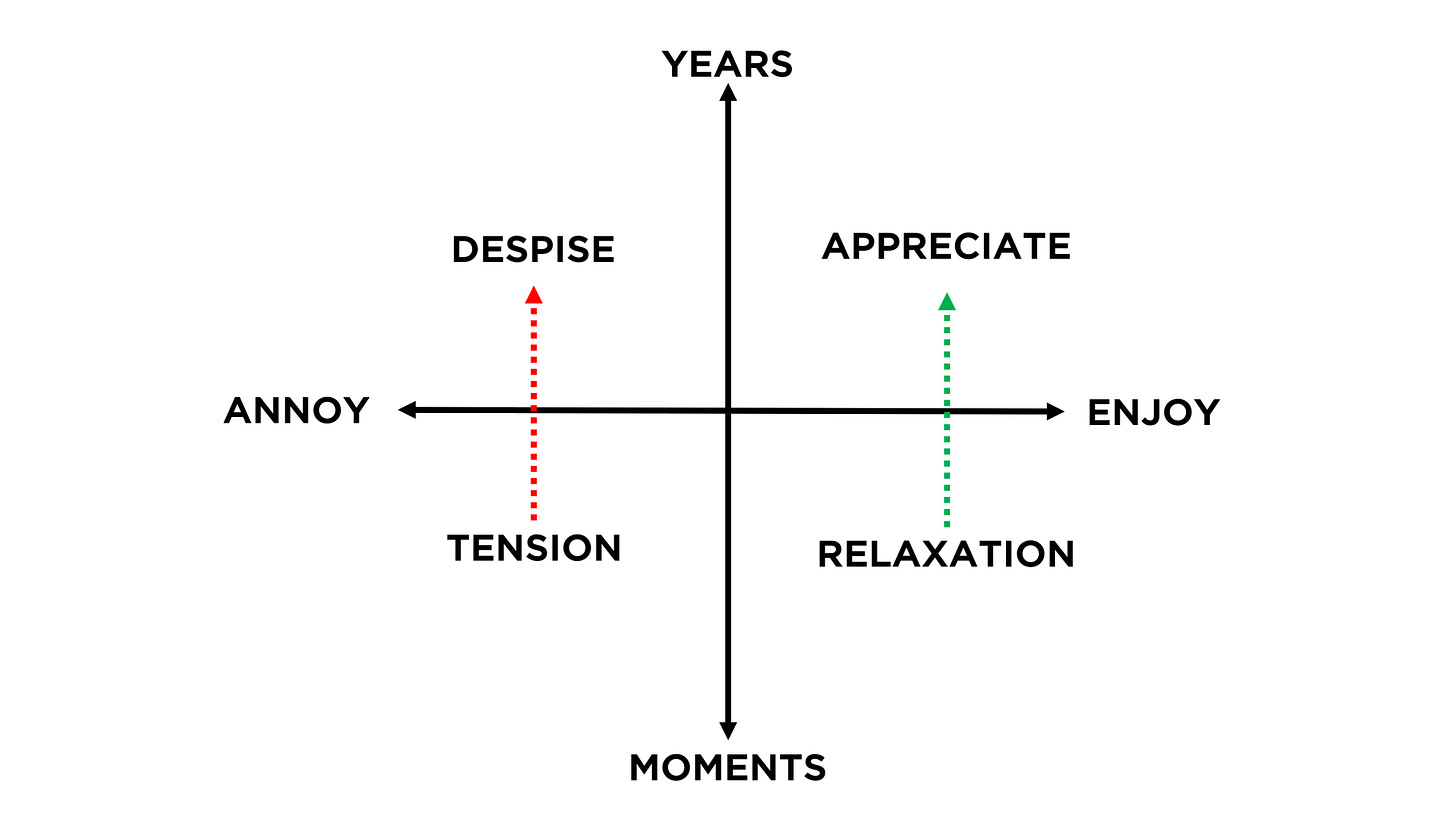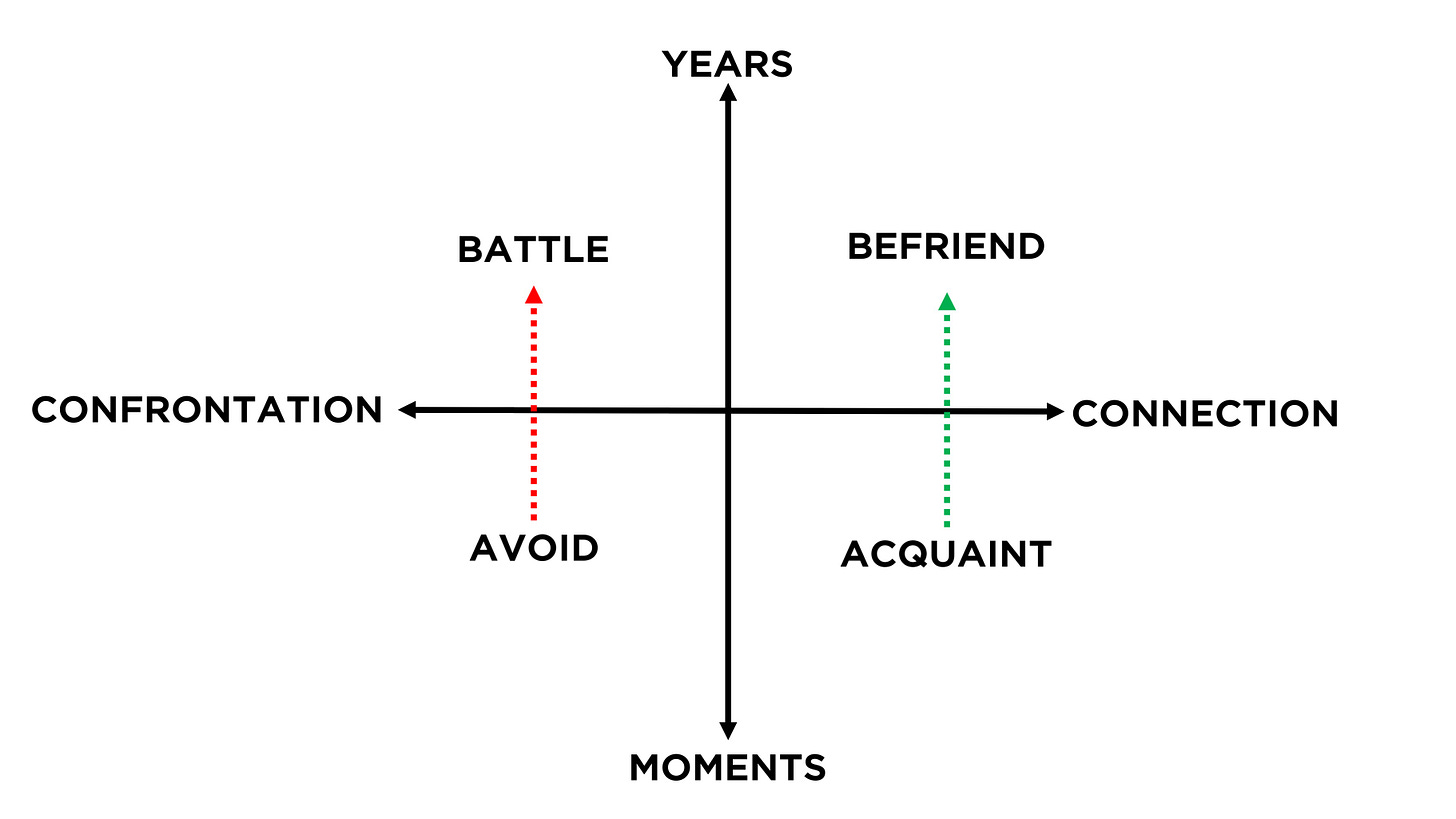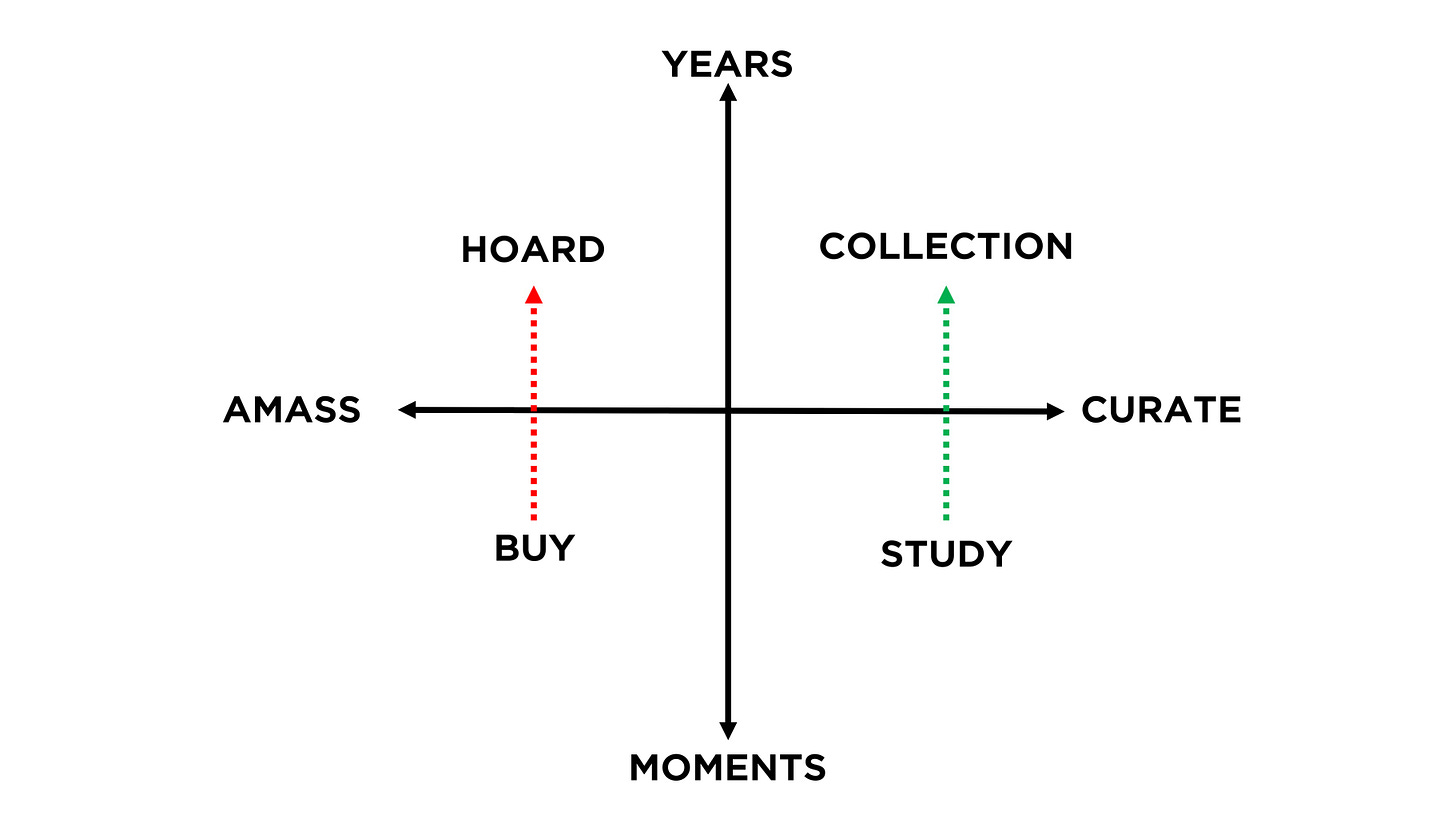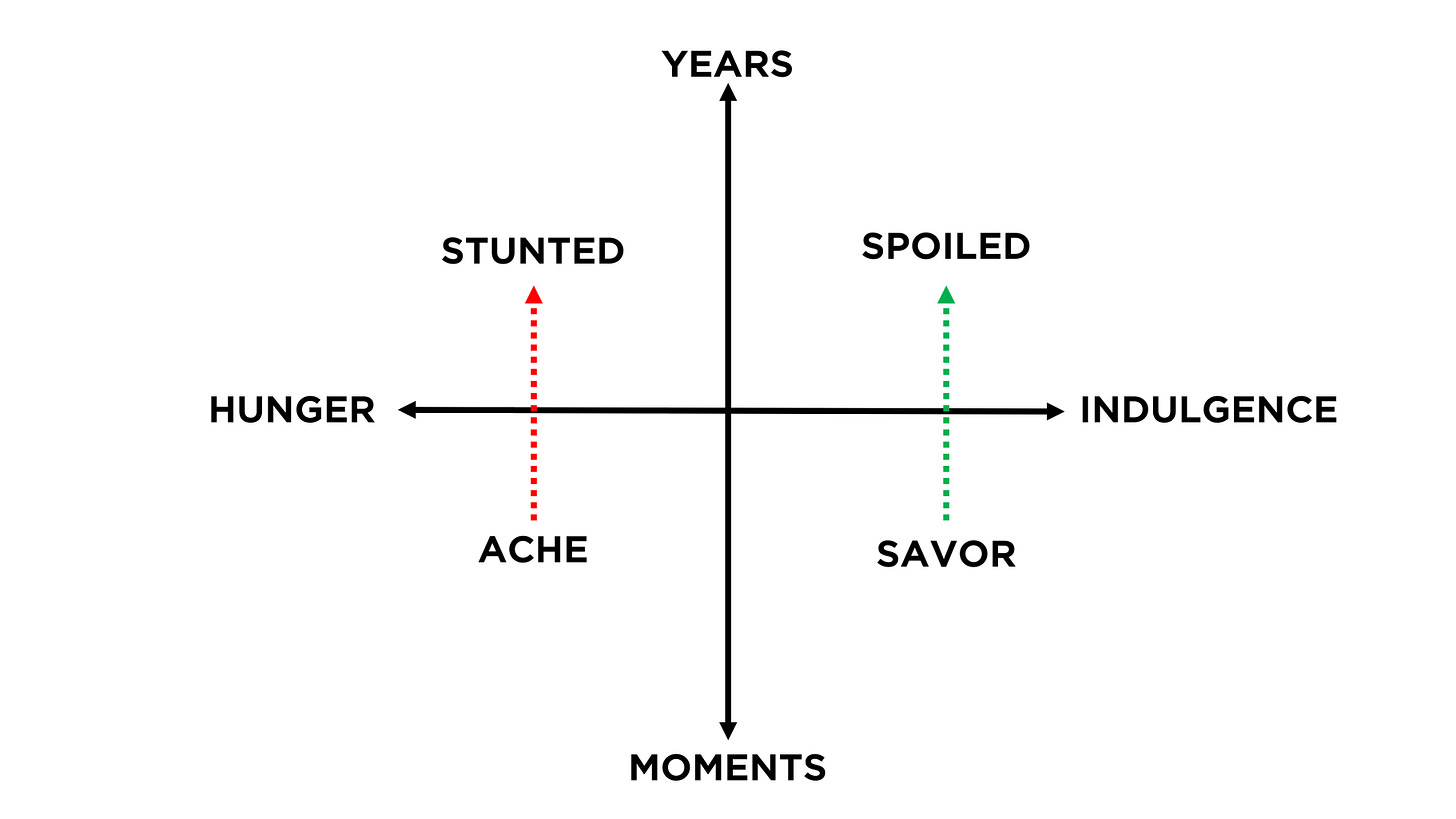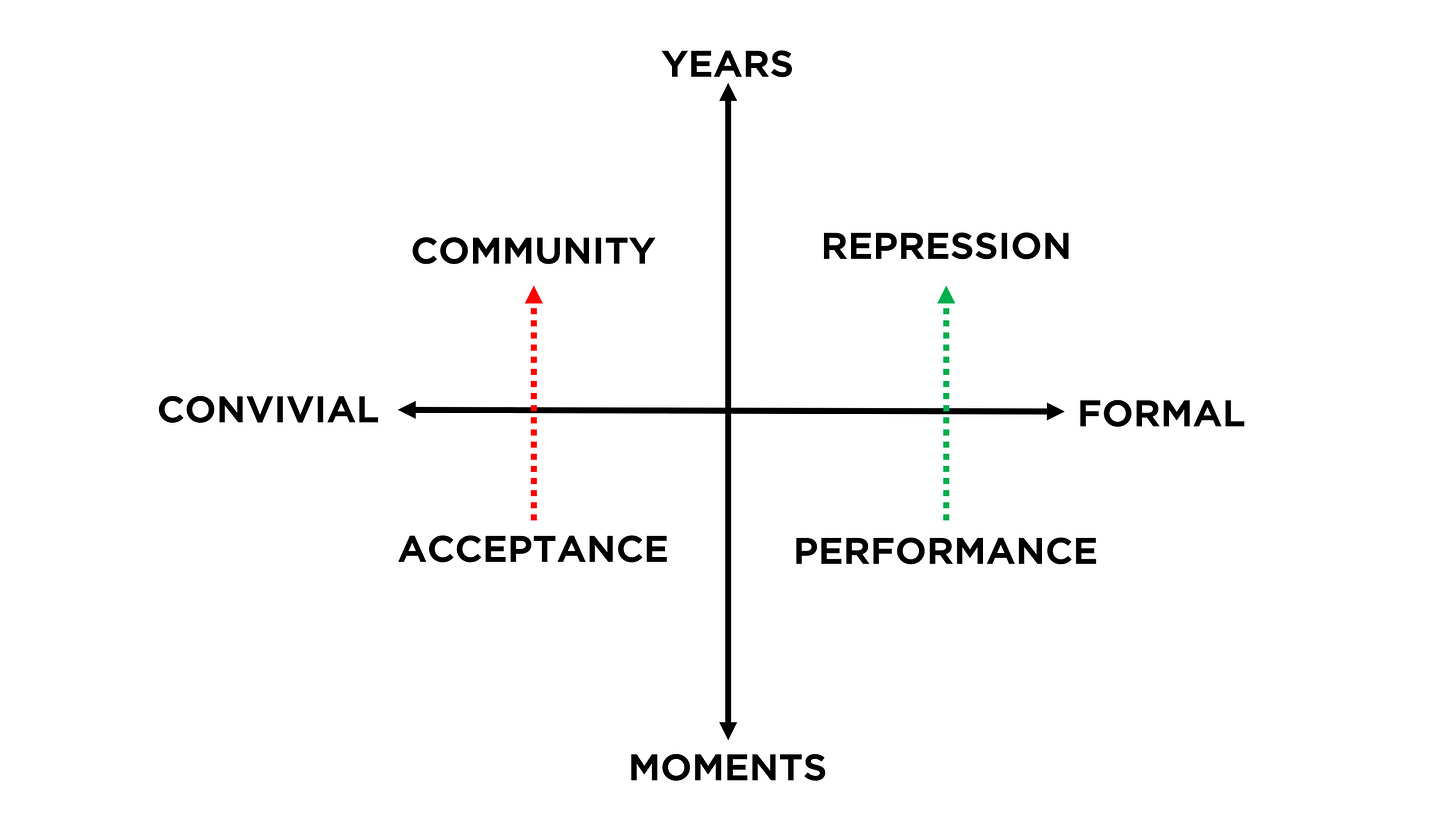Trend Spotting
10 patterns it helps to spot early.
We put a lot of stock in first impressions because they’re the first data point we get. The second impression becomes the first connectable dot, and from there, we extrapolate with every successive event.
It’s the way little details stack up into larger stories, and first moves become foreshadowing as time passes. So the green flags and red flags assemble into armies that can save ro destroy us, if only we pay attention to their formations.
No castle falls to ruin overnight, and no skincare routine is noticeable for months. The world won’t end if you don’t sweep the porch, but that’s how the porch ends up falling down eventually.
We start school hoping things will click, and when they do, we want to keep learning. If we don’t understand what’s happening, dropping out (abandoning the TV series, stepping away from mixed messages, tuning out the propaganda that contradicts itself) makes obvious sense.
The coaches (athletic, relationship, career) of the world know that it’s the pattern of work, more than anything, that makes any kind of success possible. This is also why the Duolingo bird is such an intense little critter.
And it’s the small reactions that build everything from brands to empires. What is enjoyable becomes valuable and what begins with annoyance ends with destruction if the annoyance goes on too long. Dominos fall in predictable directions.
The antagonist (god, nature, man-against-himself, some asshole who can’t zipper merge, whoever) becomes the antagonist via an initial confrontation. The antagonist becomes a nemesis by confronting the protagonist over and over again. True friends do the opposite.
When the pile of actions takes on a physical form, we end up with landfills, museums, garage sales, and bodies of knowledge.
The string of predictable behaviors can show up in how we look and what we crave the most. Ribs emerge when we have too much sleep for too many dinners and brats have rooms full of things they hinted that they might like.
And the role we take on at first becomes a role we have to keep playing. We mask and code-switch and stay in closets when we can’t break-out of our original castings.
The little things turn into big things when we let them take their patterned-course. When the inertia of habit adds layers of weight, we end up with the ability to easily see that the first impression was more than a clue, it was the first thread in a pattern.
From icks to crushes, our first data points are precious pieces of information. Noticing the patterns tracing themselves all over our lives can help us change what we want to and predictably continue what we don’t want to lose.


